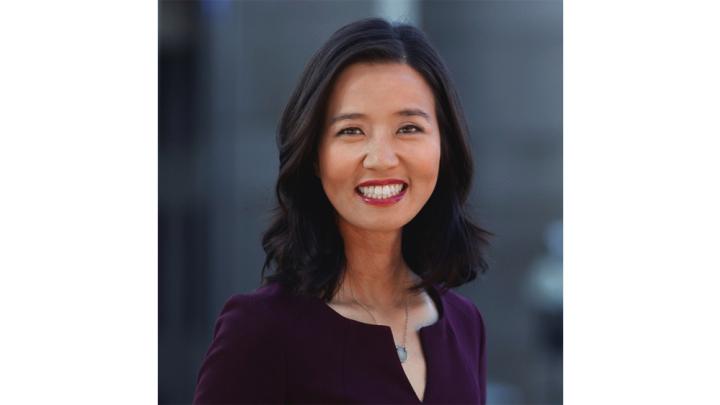The Harvard College Class of 2022 has selected Michelle Wu ’07, J.D. ’12, the first female and first person of color elected to be Boston’s mayor, to speak at the Class Day celebration on May 25, the day before Harvard’s 371st Commencement.
Wu has forged a trailblazing path through public service, beginning in 2013 when at age 28 she became the first Asian-American woman elected to the Boston City Council. Three years later, she was the first woman-of-color council president, and in 2021, was elected mayor. Second marshal and co-chair of the speaker selection committee Ruth Jaensubhakij ’22 said, the Class of 2022 selected Wu as their speaker because she is “an inspiring leader and fierce defender of equity, inclusion, and opportunity,” who has “worked tireless for a Boston that supports everyone and that will continue to be a model of excellence for the world. As we graduate, we are fortunate to be able to learn from her experiences and her leadership, especially at a time when community engagement is more important than ever.”
“I’m deeply honored to join this year’s graduating seniors for Class Day, returning to campus with fond memories and fresh excitement,” said Wu. During her time at Harvard College as an economics concentrator, she led the Phillips Brooks House Association’s Chinatown Citizenship Program and sang soprano alongside vocalists from Harvard and Boston in the Harvard-Radcliffe Chorus. Returning as the Class Day speaker, Wu said, “It’s an inspiration to see the activism and accomplishment represented across this class, and I look forward to cheering on their leadership for years to come.”
Born to Taiwanese immigrant parents and raised in Chicago, Wu decided to pursue government and public service after returning home at 22 to care for her mother during a mental health crisis. She became the guardian of her youngest sibling and ran the family business, navigating complex public care and support networks. She told Harvard Law Today, “All of a sudden, I realized how much government mattered, particularly city government.”
Prior to pursuing elected office, Wu worked in community advocacy as a legal advisor to low-income small-business owners at the Community Enterprise Project. She then served as a statewide constituency director for the U.S. Senate campaign of her mentor and HLS Gottlieb professor of law emerita, Sen. Elizabeth Warren.
As a councilor and mayor, Wu has passed legislation for paid parental leave, climate resiliency, housing stability, workers’ rights, food justice, and language access. She has also advocated for fare-free public transit and mapping out a Boston Green New Deal.
Wu’s civic mindedness has been celebrated by the Massachusetts Democratic Party, who awarded her its highest honor in 2017, and Marie Claire magazine alike, which deemed her one of the “50 Most Influential Women in America.” Boston Magazine put her at the top of their “100 Most Influential People in Boston” list and said that Wu is “a fundamentally new type of mayor,” who combines a national outlook with local action.
The Class Day festivities will feature Wu’s address, as well as award presentations and student speeches. The event will begin at 2p.m. on Wednesday, May 25 in Tercentenary Theatre and will be streamed live online.
Read the University's official Class Day speaker announcement here.







